Search Results for Data Science
To browse more topics, click a topic below or try our advanced search.
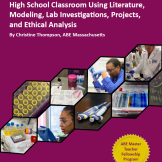 Resource (Teaching Materials, Lab-based)
Resource (Teaching Materials, Lab-based)Exploring CRISPR-Cas9 in the High School Classroom Using Literature, Modeling, Lab Investigations, Projects, and Ethical Analysis

This unit, developed by ABE Massachusetts Master Teacher Fellow Christine Thompson, introduces students to CRISPR-Cas9 gene-editing technology through a combination of literature, modeling,… Read more
Class Sessions9–15
Appropriate AgesUpper Secondary, Advanced
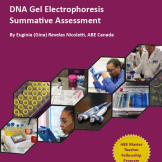 Resource (Teaching Materials, Lab-based)
Resource (Teaching Materials, Lab-based)DNA Gel Electrophoresis Summative Assessment

This lab and assessment, developed by ABE Canada Master Teacher Fellow Gina Revelas Nicoletti, evaluate students’ abilities to perform and analyze DNA gel electrophoresis. Students use micropipettes… Read more
Class Sessions5
Appropriate AgesUpper Secondary
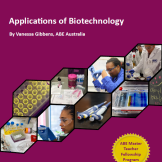 Resource (Teaching Materials, Lab-based)
Resource (Teaching Materials, Lab-based)Applications of Biotechnology

In this engaging unit, developed by ABE Australia Master Teacher Fellow Vanessa Gibbens, students explore real-world applications of biotechnology. Through hands-on use of biotechnology techniques… Read more
Class Sessions15–20
Appropriate AgesUpper Secondary
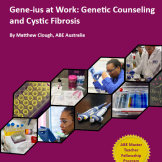 Resource (Teaching Materials, Lab-based)
Resource (Teaching Materials, Lab-based)Gene-ius at Work: Genetic Counseling and Cystic Fibrosis

In this unit, developed by ABE Australia Master Teacher Fellow Matthew Clough, students step into the role of genetic counselors to explore the inheritance and ethical implications of genetic… Read more
Class Sessions10
Appropriate AgesUpper Secondary, Introductory, Advanced
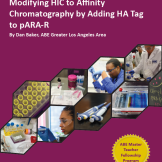 Resource (Teaching Materials, Lab-based)
Resource (Teaching Materials, Lab-based)Modifying HIC to Affinity Chromatography by Adding HA Tag to pARA-R

In this advanced high school biotechnology unit, developed by ABE Greater Los Angeles Master Teacher Fellow Dan Baker, students explore commercial protein purification techniques by engineering a… Read more
Class Sessions6
Appropriate AgesUpper Secondary, Advanced
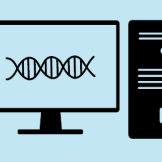 Resource (Teaching Materials, Classroom-based, Web-based)
Resource (Teaching Materials, Classroom-based, Web-based)Introduction to Bioinformatics

This series of bioinformatics introductory activities puts students in the role of scientists analyzing samples of genetic material collected after a meteor shower. Are the samples contaminated from… Read more
Appropriate AgesLower Secondary, Upper Secondary, Introductory
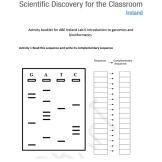 Resource (Teaching Materials, Classroom-based, Web-based)
Resource (Teaching Materials, Classroom-based, Web-based)Introduction to Genomics and Bioinformatics Booklet

This workbook introduces students to the foundational concepts of bioinformatics and genomics and connects them to the ABE Foundations of Biotech labs. Read more
Appropriate AgesUpper Secondary, Advanced
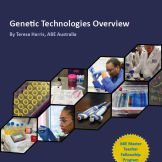 Resource (Teaching Materials, Web-based)
Resource (Teaching Materials, Web-based)Genetic Technologies Overview

This lesson provides an introduction to eight current topics in biotechnology, including polymerase chain reaction (PCR), DNA "fingerprinting," and genetic sequencing. The scientific principles… Read more
Class Sessions11Appropriate AgesUpper Secondary
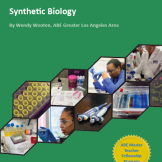 Resource (Teaching Materials, Classroom-based)
Resource (Teaching Materials, Classroom-based)Synthetic Biology

In this lesson, students learn research and learn the underlying concepts of Synthetic Biology, learn how to apply engineering design process to create systems of devices composed of parts of DNA,… Read more
Class Sessions5–15Appropriate AgesUpper Secondary
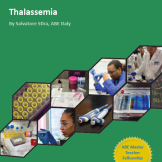 Resource (Teaching Materials, Classroom-based)
Resource (Teaching Materials, Classroom-based)Thalassemia

In this lesson, students deepen their understanding of the relationship between scientific research in modern biology and medicine by studying the genetic basis of thalassemia, a form of hereditary… Read more
Class Sessions15Appropriate AgesUpper Secondary
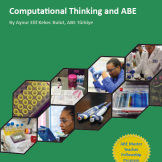 Resource (Teaching Materials, Classroom-based)
Resource (Teaching Materials, Classroom-based)Computational Thinking and ABE

In this lesson, no instructions are provided. Instead, students use examples of what imaginary players have done to figure out how to play a game. Students practice the four parts of computational… Read more
Class Sessions1Appropriate AgesUpper Secondary
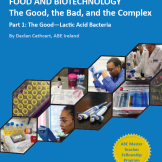 Resource (Teaching Materials, Lab-based)
Resource (Teaching Materials, Lab-based)The Good, the Bad, and the Complex Part 1: The Good—Lactic Acid Bacteria

Students investigate some of the claims companies make about probiotics and learn several key techniques in biotechnology (including aseptic technique, spreading, pipetting, sterilization using a… Read more
Class Sessions5+Appropriate AgesUpper Secondary
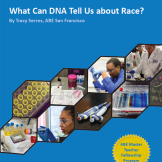 Resource (Teaching Materials, Lab-based)
Resource (Teaching Materials, Lab-based)What Can DNA Tell Us About Race?

This project examines issues of race and racism using a variety of scientific lenses, and debunks many widely held misconceptions. Students use a variety of techniques to look at misconceptions,… Read more
Appropriate AgesUpper Secondary
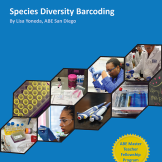 Resource (Teaching Materials, Lab-based)
Resource (Teaching Materials, Lab-based)Species Diversity Barcoding

In this project, students analyze and compare DNA samples from a variety of different species in a process known as "barcoding." They also learn to perform several common scientific techniques and… Read more
Appropriate AgesUpper Secondary
 Resource (Teaching Materials, Lab-based)
Resource (Teaching Materials, Lab-based)Exploring CRISPR-Cas9 in the High School Classroom Using Literature, Modeling, Lab Investigations, Projects, and Ethical Analysis

This unit, developed by ABE Massachusetts Master Teacher Fellow Christine Thompson, introduces students to CRISPR-Cas9 gene-editing technology through a combination of literature, modeling,… Read more
Class Sessions9–15
Appropriate AgesUpper Secondary, Advanced
 Resource (Teaching Materials, Lab-based)
Resource (Teaching Materials, Lab-based)DNA Gel Electrophoresis Summative Assessment

This lab and assessment, developed by ABE Canada Master Teacher Fellow Gina Revelas Nicoletti, evaluate students’ abilities to perform and analyze DNA gel electrophoresis. Students use micropipettes… Read more
Class Sessions5
Appropriate AgesUpper Secondary
 Resource (Teaching Materials, Lab-based)
Resource (Teaching Materials, Lab-based)Applications of Biotechnology

In this engaging unit, developed by ABE Australia Master Teacher Fellow Vanessa Gibbens, students explore real-world applications of biotechnology. Through hands-on use of biotechnology techniques… Read more
Class Sessions15–20
Appropriate AgesUpper Secondary
 Resource (Teaching Materials, Lab-based)
Resource (Teaching Materials, Lab-based)Gene-ius at Work: Genetic Counseling and Cystic Fibrosis

In this unit, developed by ABE Australia Master Teacher Fellow Matthew Clough, students step into the role of genetic counselors to explore the inheritance and ethical implications of genetic… Read more
Class Sessions10
Appropriate AgesUpper Secondary, Introductory, Advanced
 Resource (Teaching Materials, Lab-based)
Resource (Teaching Materials, Lab-based)Modifying HIC to Affinity Chromatography by Adding HA Tag to pARA-R

In this advanced high school biotechnology unit, developed by ABE Greater Los Angeles Master Teacher Fellow Dan Baker, students explore commercial protein purification techniques by engineering a… Read more
Class Sessions6
Appropriate AgesUpper Secondary, Advanced
 Resource (Teaching Materials, Lab-based)
Resource (Teaching Materials, Lab-based)The Good, the Bad, and the Complex Part 1: The Good—Lactic Acid Bacteria

Students investigate some of the claims companies make about probiotics and learn several key techniques in biotechnology (including aseptic technique, spreading, pipetting, sterilization using a… Read more
Class Sessions5+Appropriate AgesUpper Secondary
 Resource (Teaching Materials, Lab-based)
Resource (Teaching Materials, Lab-based)What Can DNA Tell Us About Race?

This project examines issues of race and racism using a variety of scientific lenses, and debunks many widely held misconceptions. Students use a variety of techniques to look at misconceptions,… Read more
Appropriate AgesUpper Secondary
 Resource (Teaching Materials, Lab-based)
Resource (Teaching Materials, Lab-based)Species Diversity Barcoding

In this project, students analyze and compare DNA samples from a variety of different species in a process known as "barcoding." They also learn to perform several common scientific techniques and… Read more
Appropriate AgesUpper Secondary
 Resource (Teaching Materials, Classroom-based, Web-based)
Resource (Teaching Materials, Classroom-based, Web-based)Introduction to Bioinformatics

This series of bioinformatics introductory activities puts students in the role of scientists analyzing samples of genetic material collected after a meteor shower. Are the samples contaminated from… Read more
Appropriate AgesLower Secondary, Upper Secondary, Introductory
 Resource (Teaching Materials, Classroom-based, Web-based)
Resource (Teaching Materials, Classroom-based, Web-based)Introduction to Genomics and Bioinformatics Booklet

This workbook introduces students to the foundational concepts of bioinformatics and genomics and connects them to the ABE Foundations of Biotech labs. Read more
Appropriate AgesUpper Secondary, Advanced
 Resource (Teaching Materials, Classroom-based)
Resource (Teaching Materials, Classroom-based)Synthetic Biology

In this lesson, students learn research and learn the underlying concepts of Synthetic Biology, learn how to apply engineering design process to create systems of devices composed of parts of DNA,… Read more
Class Sessions5–15Appropriate AgesUpper Secondary
 Resource (Teaching Materials, Classroom-based)
Resource (Teaching Materials, Classroom-based)Thalassemia

In this lesson, students deepen their understanding of the relationship between scientific research in modern biology and medicine by studying the genetic basis of thalassemia, a form of hereditary… Read more
Class Sessions15Appropriate AgesUpper Secondary
 Resource (Teaching Materials, Classroom-based)
Resource (Teaching Materials, Classroom-based)Computational Thinking and ABE

In this lesson, no instructions are provided. Instead, students use examples of what imaginary players have done to figure out how to play a game. Students practice the four parts of computational… Read more
Class Sessions1Appropriate AgesUpper Secondary
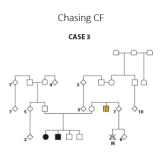 Resource (Classroom-based)
Resource (Classroom-based)Chasing Cystic Fibrosis

Students become engaged in learning about the disease cystic fibrosis (CF): they develop questions that they have about CF, its treatment, and its consequences, and then explore how they can… Read more
Class Sessions8–9Appropriate AgesUpper Secondary, Advanced
 Resource (Teaching Materials, Classroom-based, Web-based)
Resource (Teaching Materials, Classroom-based, Web-based)Introduction to Bioinformatics

This series of bioinformatics introductory activities puts students in the role of scientists analyzing samples of genetic material collected after a meteor shower. Are the samples contaminated from… Read more
Appropriate AgesLower Secondary, Upper Secondary, Introductory
 Resource (Teaching Materials, Classroom-based, Web-based)
Resource (Teaching Materials, Classroom-based, Web-based)Introduction to Genomics and Bioinformatics Booklet

This workbook introduces students to the foundational concepts of bioinformatics and genomics and connects them to the ABE Foundations of Biotech labs. Read more
Appropriate AgesUpper Secondary, Advanced
 Resource (Teaching Materials, Web-based)
Resource (Teaching Materials, Web-based)Genetic Technologies Overview

This lesson provides an introduction to eight current topics in biotechnology, including polymerase chain reaction (PCR), DNA "fingerprinting," and genetic sequencing. The scientific principles… Read more
Class Sessions11Appropriate AgesUpper Secondary
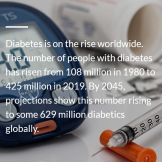 Resource (Web-based)
Resource (Web-based)Using Bioinformatics to Track Down a Rare Cause of Diabetes

Many people are aware of the main two types of diabetes: type 1 and type 2. However, few people know that there are other types of diabetes. One type occurs in pregnant women (gestational diabetes),… Read more
Appropriate AgesLower Secondary
 Blog Post
Blog PostA Real-World Biotech Detective

Detective work is not found only in law enforcement. Epidemiologists and data scientists all investigate what happens when a medicine enters the real world, “deciphering” everything from who receives… Read more
 Career Profile
Career ProfileCatherine Bond

In high school, Catherine Bond found her computer science classes challenging. While that experience turned her off from the programming space initially, she says, it did not manage to fully turn her… Read more
 Blog Post
Blog PostTaking Biotech to a Whole New Level with Data Analytics

This story is part of an ABE series on data science in biotechnology. Read the overview story and then a profile of Marvin Gee. "When one door is closed or seems closed, there might be another… Read more
 Blog Post
Blog PostBridging the Gap Between Immunology and Data Science

"Bridging the gap between immunology and data science allowed me to make new breakthroughs that were not readily possible." —Marvin Gee This story is part of an ABE series on data science in… Read more
 Blog Post
Blog PostThe Explosion of Data Science in Biotechnology

This story is the first part of an ongoing ABE series on data science in biotechnology. Every human cell is packed full of proteins twisted and folded into specific shapes. The shapes of… Read more
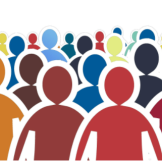 Blog Post
Blog PostAnalyzing Our Genes to Pinpoint Disease

You may never have heard of her, but Dr. Mary-Claire King is a significant name when it comes to the study of genetics. King was born in 1946 in Illinois (USA). The loss of her childhood best friend… Read more
 Career Profile
Career ProfileJörg Auernheimer

Reflecting on his educational and career path, Jörg Auernheimer, a global safety manager at Amgen in Munich, says that one of the biggest things he wishes he had known from the beginning—as a high… Read more
 Career Profile
Career ProfileKerry Weinberg

Kerry Weinberg’s diverse career has spanned biology, computer science, teaching, and business administration. Now head of data science for Digital Health and Innovation at Amgen in Thousand… Read more
 Career Profile
Career ProfileDavid Hansen

For David Hansen, learning how to work with others has been his single greatest asset in navigating a technical career. Now Executive Director of Global Statistical Programming at Amgen, he reflects… Read more
